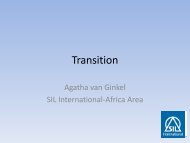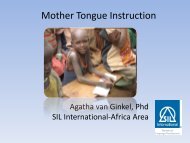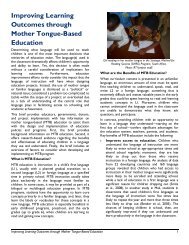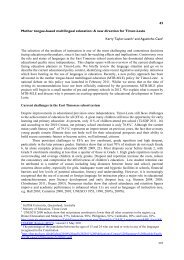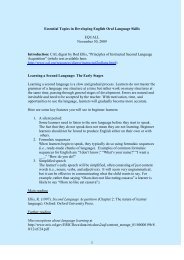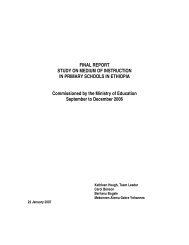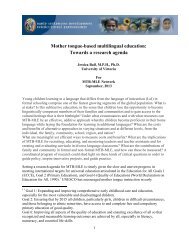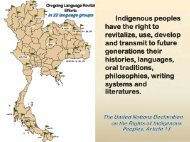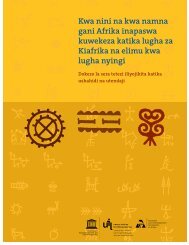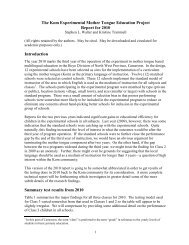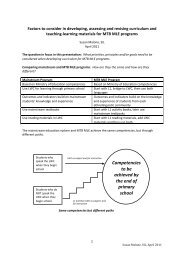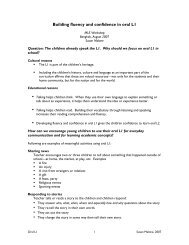Part I.pdf - MTB-MLE Network
Part I.pdf - MTB-MLE Network
Part I.pdf - MTB-MLE Network
You also want an ePaper? Increase the reach of your titles
YUMPU automatically turns print PDFs into web optimized ePapers that Google loves.
• Provide funding or identify and encourage outside donors to support <strong>MLE</strong> programmes• Distribute graded reading materials in the LWCNGOs• Train ML speakers to conduct preliminary research• Provide linguistic expertise to support orthography development• Train ML speakers as trainers, teachers, supervisors, writers, artists, editors• Develop curricula, specifically help ML speakers to adapt curriculum guidelines to theirlocal context• Facilitate the development of ML literature as well as “bridging” literature• Provide funding or identify and link ethnic minority communities to appropriate donoragenciesAcademic institutions• Collect and provide information about the language situation• Train ML speakers to conduct linguistic research• Provide linguistic expertise to support orthography developmentConclusionCan <strong>MLE</strong> be done? As noted by several presenters at this conference, evidence from minoritylanguage communities in Asia and around the world indicates that indeed, <strong>MLE</strong> programmes canbe and are being implemented and sustained.Is it difficult? It is certainly challenging, especially in multi-lingual countries lacking extensivefinancial resources, to develop writing systems, establish the necessary training programmes andsupport the production of instructional and graded reading materials in multiple languages, all ofwhich are necessary for linguistically and culturally appropriate <strong>MLE</strong> programmes in ethnic minoritycommunities.Is it really necessary? It is if “Education for All” is truly to be for all. However, perhaps a betterquestion would be: Is it really acceptable to force minority learners into education programmesthat are inappropriate to their lives and destructive to their heritage language and culture? JohnWaiko, himself a member of a minority community in Papua New Guinea, provides his perspectiveon the second question:The failure of formal education for indigenous minorities [is] well understood by indigenous peoples all overthe world. The so-called drop-out rates and failures of indigenous people within non-indigenous educationsystems should be viewed for what they really are – rejection rates. (John Waiko, PNG Minister of Education.2001).Is it worth the effort? Perhaps the best people to answer that question are the members of theethnic minority communities themselves:81



